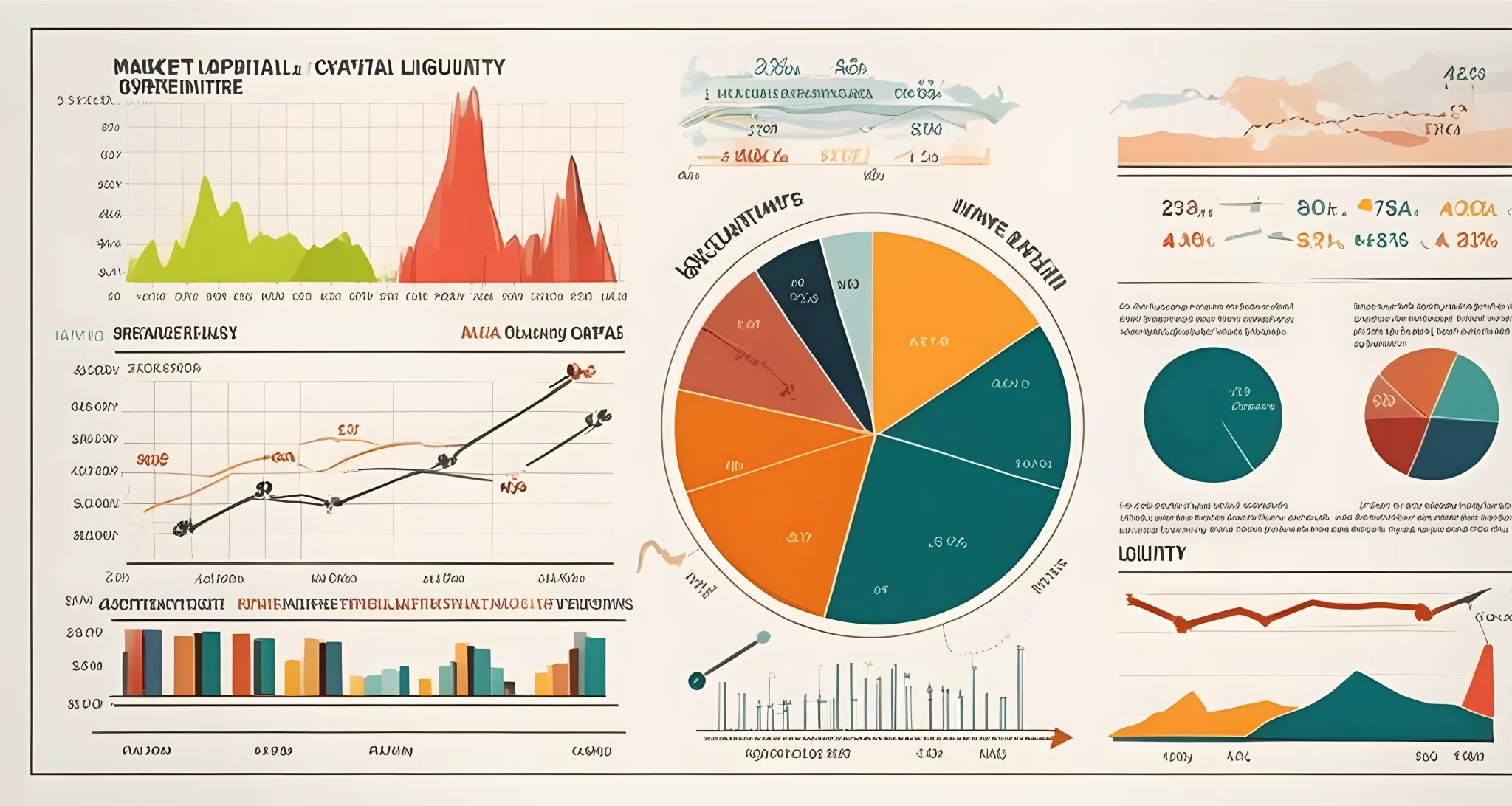Introduction to Venture Capital
Venture capital is a form of investment that provides capital to startups in exchange for equity, with the expectation of substantial returns upon successful exits, such as acquisitions or IPOs. This type of investment carries inherent risks and rewards that should be carefully assessed by investors.
Venture capital plays a critical role in the growth and development of startups, providing them with the necessary funding to scale their operations and bring innovative products and services to market. According to Startup funding and growth, venture capital has a significant impact on the growth of startups, allowing them to access the resources and expertise needed to succeed in competitive markets.
Investing in venture capital offers the potential for high returns, but it also comes with substantial risks. As an investor, it is important to understand the nature of venture capital investments and the factors that can impact their success or failure. This includes understanding market, operational, financial, liquidity, and strategic risks associated with venture capital investments.
In the dynamic world of startups, venture capital provides a lifeline for entrepreneurs looking to turn their innovative ideas into thriving businesses. It allows them to access funding that may not be available through traditional financing channels, opening up opportunities for growth and expansion.
In conclusion, venture capital is a key driver of innovation and economic growth, providing vital support to startups as they navigate the challenges of building successful businesses. However, it is crucial for investors to carefully evaluate the risks and rewards associated with venture capital investments before making any decisions. By understanding the complexities of venture capital, investors can make informed choices that align with their investment goals and risk tolerance.

Risks Associated with Venture Capital Investments
Venture capital investments offer the potential for high returns, but they also come with a range of risks that investors should carefully consider. Understanding these risks is crucial for making informed investment decisions in the startup ecosystem.
Market Risk
The unpredictable nature of the startup ecosystem presents market risk. Factors such as technological advancements, shifts in consumer preferences, and regulatory changes can significantly impact the success of a startup. Investors must closely monitor market trends and changes to mitigate market risk.
Operational Risk
Startups often face challenges in executing their business plans effectively, including scalability, production capacity, supply chain management, and talent acquisition. Operational risk is inherent in the early stages of a startup’s development and requires careful management to ensure long-term success.
Financial Risk
Financial difficulties such as cash flow constraints, excessive debt burdens, or insufficient revenue generation pose financial risk to venture capital investments. It is essential for investors to assess the financial health and stability of startups before committing capital.
Liquidity Risk
Venture capital investments often have long investment horizons and limited access to public markets for trading securities. This creates liquidity risk, making it challenging for investors to sell their holdings when needed. Mitigating liquidity risk requires careful consideration of investment time horizons and exit strategies.
Strategic Risk
Startups may face strategic risks related to poor decision-making or failure to adapt to changing market conditions. Investors should closely evaluate a startup’s strategic direction and ability to respond to market dynamics to minimize potential losses.
Understanding these risks associated with venture capital investments is vital for investors Importance of capital in start-up. By carefully assessing market, operational, financial, liquidity, and strategic risks, investors can make informed decisions that balance the potential rewards with the inherent challenges of investing in startups.

Rewards of Venture Capital Investments
Venture capital investments offer several rewards despite the associated risks. One of the most significant benefits is the potential for high returns. Successful startups can generate substantial returns for investors, making venture capital an attractive investment option. Additionally, investors can benefit from the success of the startups they have invested in through equity stakes.
Furthermore, venture capital investments provide an opportunity to be part of the growth and success of innovative and disruptive companies. By supporting these startups, investors can contribute to the development of groundbreaking technologies and ideas that have the potential to reshape industries and markets.
Moreover, venture capital investments offer the advantage of diversification. By allocating funds to a portfolio of startups, investors can spread their risk across multiple ventures, reducing their exposure to any single company’s failure.
It’s important to note that venture capital investments also provide non-monetary rewards. Investors often have the opportunity to work closely with entrepreneurs and contribute their expertise and experience to help guide the growth and development of the startups they have invested in.
Overall, despite the inherent risks, venture capital investments present an exciting opportunity for investors to engage in high-risk, high-reward ventures that have the potential to yield significant returns and contribute to innovation and growth in various industries.
For more information on managing risks associated with startup ventures, you can refer to Startup risk management.

Understanding Market, Operational, Financial, Liquidity, and Strategic Risks
When considering venture capital investments, it is crucial for investors to have a comprehensive understanding of the various risks involved. Market, operational, financial, liquidity, and strategic risks all play a significant role in evaluating potential investments.
Market Risks
The market is a critical factor in assessing the potential success of a venture capital investment. Factors such as technological advancements and changing consumer preferences can have a significant impact on the market. Investors should carefully evaluate market trends and customer demands to anticipate potential risks and opportunities. VC Landscape Tips can provide valuable insights into navigating the ever-changing market landscape.
Operational Risks
Operational risks encompass the day-to-day functions of a business. Investors need to assess the scalability and efficiency of the business, as well as its ability to adapt to changes in the industry. Understanding operational risks involves evaluating the management team, business processes, and overall operational stability.
Financial Risks
Financial stability is a critical consideration for venture capital investments. Investors must carefully analyze the financial health of the company, including its revenue streams, cost structure, and potential for profitability. Assessing financial risks involves conducting thorough due diligence on the company’s financial statements and projections.
Liquidity Risks
Liquidity risk refers to the ease with which an investment can be converted into cash without affecting its market price. Venture capital investments are typically illiquid assets, meaning they cannot be easily sold or traded. Investors should consider the potential challenges associated with exiting their investment and plan accordingly.
Strategic Risks
Strategic decision-making plays a significant role in the success of a venture capital investment. Evaluating strategic risks involves assessing the company’s long-term vision, competitive positioning, and ability to adapt to industry changes. Understanding how strategic decisions may impact the future prospects of the business is essential for investors.
In conclusion, evaluating market, operational, financial, liquidity, and strategic risks is crucial for making informed venture capital investments. By carefully assessing these risks, investors can better understand the potential rewards and make well-informed investment decisions.

Conclusion and Considerations for Investors
Venture capital investments can be an attractive opportunity for investors, but they come with inherent risks that should not be overlooked. It is important for investors to carefully evaluate the potential risks and rewards before making investment decisions. By understanding market, operational, financial, liquidity, and strategic risks, investors can make informed decisions about venture capital investments.
When considering venture capital investments, it is crucial for investors to conduct thorough due diligence. This includes researching the market to understand the demand for the product or service being offered. Investors should also assess the operational risks associated with the startup, such as management team experience and scalability of the business model.
Financial risks are another important consideration for investors. They should analyze the startup’s financial statements and projections to determine its ability to generate revenue and achieve profitability. Additionally, liquidity risk should be evaluated to ensure that there is a viable exit strategy for the investment.
Strategic risks, such as competitive landscape and technological advancements, should also be taken into account. Investors must assess whether the startup has a sustainable competitive advantage and is able to adapt to changes in the industry.
In conclusion, venture capital investments offer the potential for high returns, but they also come with significant risks. It is essential for investors to carefully weigh these risks against the potential rewards before making investment decisions. By understanding the market, operational, financial, liquidity, and strategic risks associated with venture capital investments, investors can make informed choices that align with their investment goals.
For further insights into overcoming challenges in startups and finding success in the industry, check out Success in startups. This resource provides valuable information on navigating the complexities of startup ventures and achieving success in this competitive landscape.
FAQ
What are the risks associated with venture capital investments?
The risks associated with venture capital investments include market risk, operational risk, financial risk, liquidity risk, and strategic risk. these risks stem from the unpredictable nature of the startup ecosystem, challenges in executing business plans effectively, potential financial difficulties, limited access to a public market for trading securities, and the potential for poor strategic decisions or failure to adapt to changing market conditions.
What are the potential rewards of venture capital investments?
Despite the risks, venture capital investments offer several rewards. they provide the potential for high returns, as successful startups can generate substantial returns for investors. in addition, venture capital investments have the potential for substantial returns upon successful exits, such as acquisitions or initial public offerings (ipos).
How should investors assess venture capital investments?
Investors should carefully assess the risks and rewards associated with venture capital investments. it is important to thoroughly evaluate market, operational, financial, liquidity, and strategic risks, as well as consider the potential for high returns and substantial exits. additionally, investors should conduct thorough due diligence on startups before making investment decisions.
What is venture capital?
Venture capital is a type of investment that involves providing capital to startups in exchange for equity, with the expectation of substantial returns upon successful exits, such as acquisitions or ipos. this form of investment carries inherent risks and rewards that should be carefully assessed by investors.
Why are venture capital investments considered high risk?
Venture capital investments are considered high risk due to the unpredictable nature of the startup ecosystem, challenges in executing business plans effectively, potential financial difficulties, and limited access to a public market for trading securities. the potential for poor strategic decisions or failure to adapt to changing market conditions also contributes to the high-risk nature of these investments.
